Rex Weyler has lived the life dreamed of by those who want to make a difference. As a young man he joined early Greenpeace expeditions to document and stop commercial whaling. He went on to co-found Greenpeace International, and as a journalist has covered the subject of ecology extensively. The human machine is just steamrolling…toward disaster.” Weyler has lived a rich life and has a keen understanding of the source of joy, but there is sadness in his voice when…
Lorna Salzman has the chops to be an outspoken critic of many in the modern environmental movement. She played a key role in the early days of Friends of the Earth alongside David Brower (the first executive director of the Sierra Club), beginning a 40-year career as an environmental activist, writer, lecturer and organizer. A contender for the Green Party presidential nomination in 2004, Salzman is an iconoclast in every sense of the word. In this interview we hear Lorna…
The age of growth and the age in which growth is going to be considered a good thing is coming to an end.” The late sociologist William R. Catton was certain of this, but spent a significant portion of his professional life attempting to understand why mainstream society was reluctant to prove his point. Catton authored the landmark book, Overshoot: The Ecological Basis of Revolutionary Change, published in 1980. He brought important sociological perspective to a subject dominated by biologists…
Stephanie Mills made headlines in the Spring of 1969 when she vowed, in her commencement address, to conceive no children. “Our days as a race on this planet are, at this moment, numbered,” she proclaimed, “and the reason for our finite, unrosy future is that we are breeding ourselves out of existence.” In remarks titled, The Future is a Cruel Hoax, the young, articulate, environmental-leader-to-be shared her plan with fellow graduates at Mills College (no relationship): I am terribly saddened…
How big is your ecological footprint? Probably bigger than you think. After all, out of sight, out of mind. As an originator of ecological footprint analysis, population ecologist William Rees knows a thing or two about our impact on the planet. In this interview he provides some fascinating and surprising insights. Did you know most of us in the industrialized world have a footprint three or four times our fair share? Or that the “global economy is a giant Ponzi…
I don’t think there’s a lot of excuses, frankly, for not doing the right thing.” Anishinaabe orator, author, economist and activist Winona LaDuke doesn’t mince words in her quest to light a path for us to “hang around another thousand years.” “Your ecosystem seems to be your mall,” LaDuke tell us. When I asked her where she comes from, her answer was “the real world. You can drink the water out of a lake!” Something to think about. Winona observes…
“Gross Domestic Product has now become a fetish,” according to economist Raj Patel. Many undesirable things end up adding to GDP: wars, disease, and environmental destruction, for example. And GDP fails to measure many desirable indicators of community health. It has led us to live in an ecologically and socially unsustainable fashion. No one wants to live in the Stone Age, no one wants to live in a time with bad medical care, no one wants to live in a…
World-renowned physics professor Al Bartlett was quick to tell us “smart growth” and “dumb growth” both lead us to the same undesirable end; “smart growth” just takes you there in style. Bartlett penned Laws Relating to Sustainability, the most important of which was: First Law: “Population growth and/or growth in the rates of consumption of resources cannot be sustained.” Bartlett worked on the Manhattan Project with Robert Oppenheimer early in his career, then went on to spend six decades teaching at…
You could be wealthier than you think. Have you heard of “time affluence?” According to economist/sociologist Juliet Schor, many of us are giving up “the good life” in our quest for material possessions. Symbols of success, instead of enriching our lives, create stress. Americans are working longer hours and taking on debt to keep up with the Joneses and reproduce a lifestyle we’ve been told “makes life worth living.” Schor thinks there’s a better way. She calls it “plenitude,” and it’s…
This morning we’ve made the first episode of the new Conversation Earth weekly radio series available to stations around the world, free, on the Public Radio Exchange. We’ll share each week’s episode as a podcast, right here, a few days after radio stations get the show. I know you hate to wait another week, so Lynsey (co-producer extraordinaire) put together a very brief sampler, just to give you a taste of bright ideas to come. You can listen to it…

